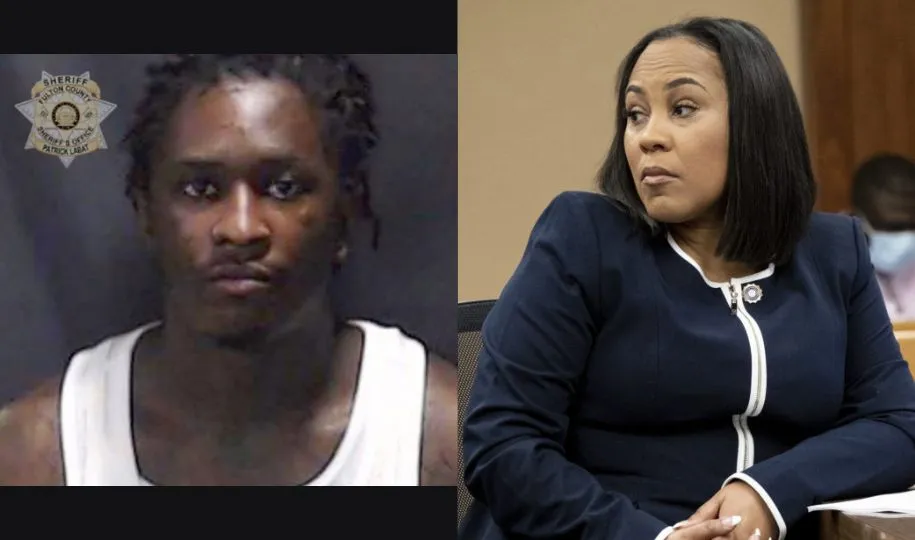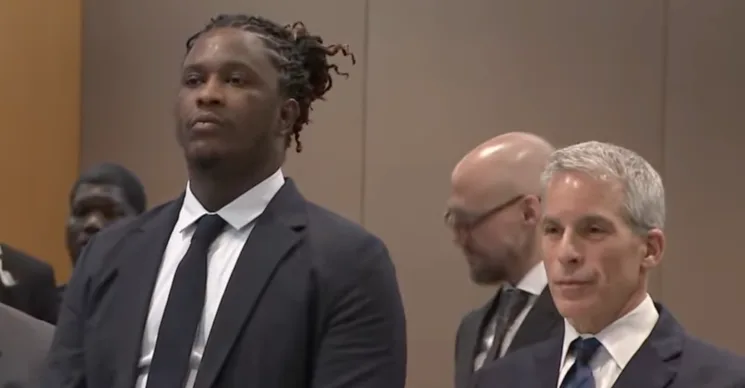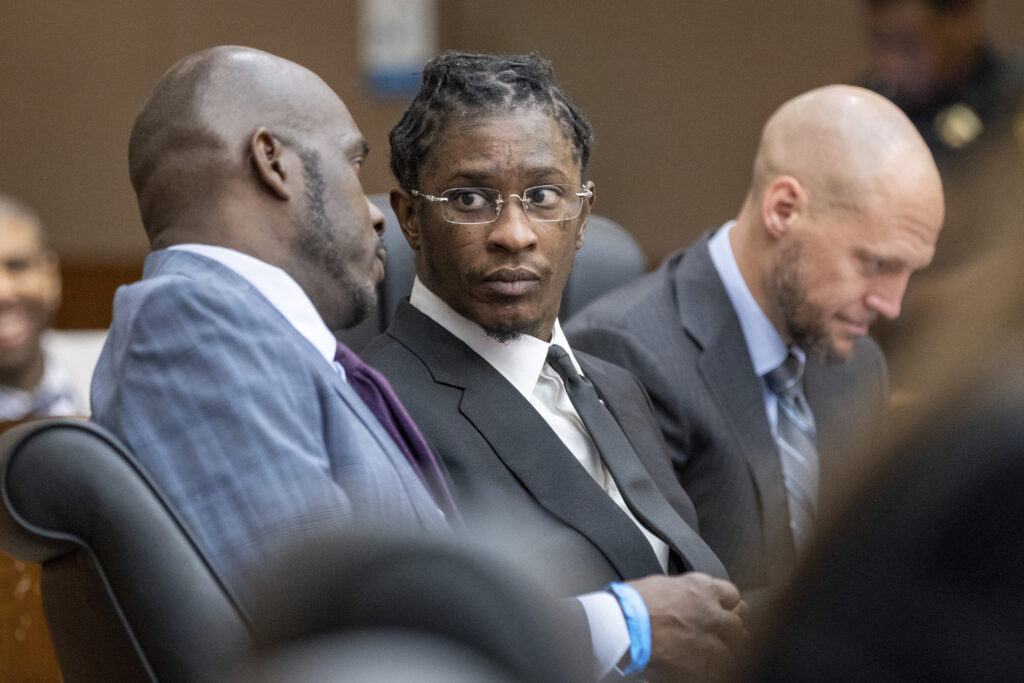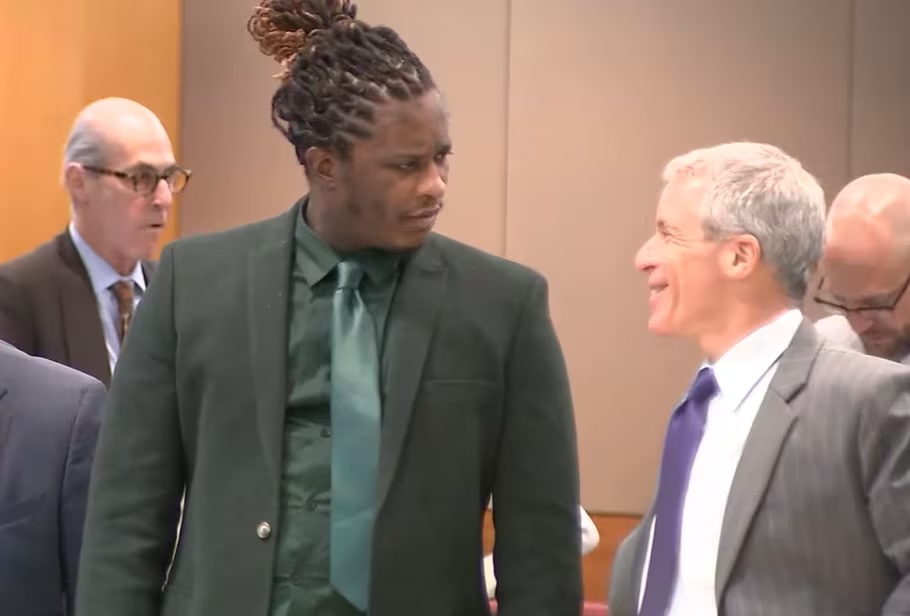‘I’m Doing an Amazing Job’: Fani Willis, Disqualified in Trump Case, Defends Getting Zero Murder Convictions in Young Thug Trial
The district attorney of Fulton County’s use of racketeering charges appears to be yielding disappointing returns.

The district attorney of Fulton County, Fani Willis, is defending her record in prosecuting the longest criminal trial in Georgia’s history — the trial of the rapper Young Thug and his associates — despite not having secured a single murder conviction.
The prosecutor struck a defiant note in respect of her sprawling racketeering case against a record label, Young Stoner Life, a case that last year ended with a whimper. Ms. Willis had alleged that YSL functioned as a criminal gang known as Young Slime Life headed by the rapper Young Thug, whose real name is Jeffery Williams II. Ms. Willis indicted 28 defendants on 65 counts including murder, drug trafficking, and weapons violations.

Eight defendants were charged with murder. None will be convicted of that charge. On Thursday, the final of those, Demise McMullen, pleaded guilty to aggravated assault in a deal under which prosecutors dropped the murder charge. Last week another defendant, Damekion Garlington, also pleaded down from murder. He is now set to serve five years in prison rather than a life sentence.
Ms. Willis told reporters on Thursday that her “message to taxpayers is: It was an amazing outcome. We had 19 convictions, and the community is safer … So, what do I say to taxpayers? I say, my constituents — who just re-elected me with 68 percent of the vote — say I’m doing an amazing job.”
The trial involving Young Thug himself lasted almost two years, and things have dragged out even longer for some of his co-defendants. The cost for the marathon trial is certain to run to many millions of dollars. The case, now staggering to a conclusion, has been mired in chaos. Three judges have presided. The first, Ural Glanville, recused after a private meeting with prosecutors and a witness. A deputy for the second, Shukura Ingram, recused after a romantic relationship between a courthouse deputy and a co-defendant.
Ms. Willis’s case suffered another blow when a key witness for the prosecution, Kenneth “Little Woody” Copeland, disavowed, under oath, his own sworn statements implicating Mr. Williams in a variety of crimes. Mr. Copeland said with respect to the prosecution, “I would’ve told them anything to get them out of my face.” He also said, “YSL was never considered a gang. Y’all are making it a gang.”

Ms. Willis reflected that the case, which has now run for more than three years, has been an “amazing time.” She adds that if her critics are “unhappy with sentencing, they should elect other judges” because “we got the resolutions we want.” Mr. Williams — who was locked up in the Cobb County jail for the trial — reached a deal with prosecutors whereby a five-year prison sentence was commuted to time served.
Mr. Williams is also banned for a decade from frequenting the metropolitan Atlanta area, where much of the country’s hip-hop business is based. It’s an unusually strict plea deal, but considering that Mr. Williams had faced life in prison if he’d been convicted of the most serious of the charges, the plea deal amounts to something less than a success for Ms. Willis.
Ms. Willis indicted President Trump and his camarilla for election interference under the same statute with which she pursued YSL. The federal racketeering law, the Racketeer Influenced and Corrupt Organizations Act, on which the Peach State based its version, was originally drafted to combat the mafia. Ms. Willis, though, alleged a racketeering enterprise led by Mr. Trump to reverse the outcome of the 2020 presidential election in the Peach State.
That case has run aground in the wake of Ms. Willis’s secret romance with her handpicked special prosecutor, Nathan Wade. Her office paid Mr. Wade more than $650,000 to prosecute a case of significant complexity even though he had never prosecuted even a simple felony before that case. Cellular telephone data adduced by the defendants appeared to show thousands of text messages and calls exchanged between Ms. Willis and Mr. Wade before he was hired.

Once Mr. Wade came aboard the prosecution, he and Ms. Willis took vacations together to destinations such as Aruba, Belize, and Napa Valley. The trips were charged to Mr. Wade’s credit card, though Ms. Willis insists that she reimbursed him with cash. Her father, a former member of the Black Panthers, testified under oath that storing cash at home is a “Black thing.” The trial judge, Scott McAfee, determined that Mr. Willis’s and Mr. Wade’s behavior emitted an “odor of mendacity.”
Judge McAfee determined that the damage to the cause caused by the prosecutors’ behavior could be remedied by Mr. Wade’s departure. The Georgia court of appeals, though, found this to be “the rare case in which disqualification is mandated and no other remedy will suffice to restore public confidence in the integrity of these proceedings.” Ms. Willis has appealed that ruling to the Georgia supreme court, which is not required to revisit it.
Even before Ms. Willis’s disqualification, though, her racketeering case was sprouting cracks. Of the defendants who pleaded guilty — the lawyers Sidney Powell and Kenneth Chesebro among them — none received jail time. Multiple charges against multiple defendants, including Mr. Trump, were ordered dropped after Judge McAfee found them to be unconstitutionally vague. Ms. Willis originally charged 19 defendants with 41 crimes.
Ms. Willis’s most successful racketeering case has been neither the one against YSL nor the prosecution of Mr. Trump. Instead, it was a case against Atlanta public school teachers for cheating on standardized tests. Ms. Willis helmed the prosecution before she was elected district attorney, and 11 of the 12 defendants were convicted. That case, at some eight months, was the longest in Georgia’s history until the YSL one.

